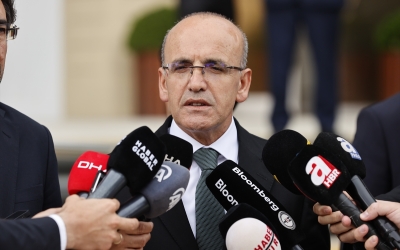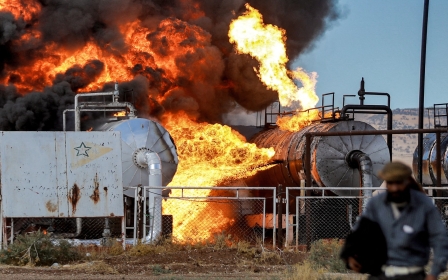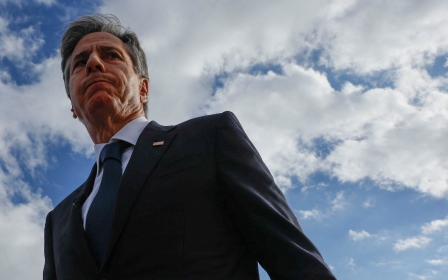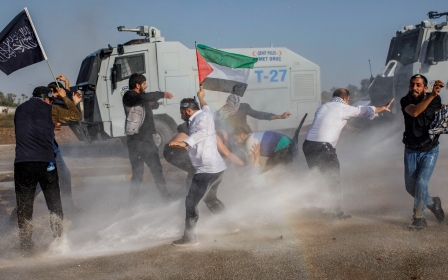Turkey: Erdogan sides with cassation court in dispute with constitutional court
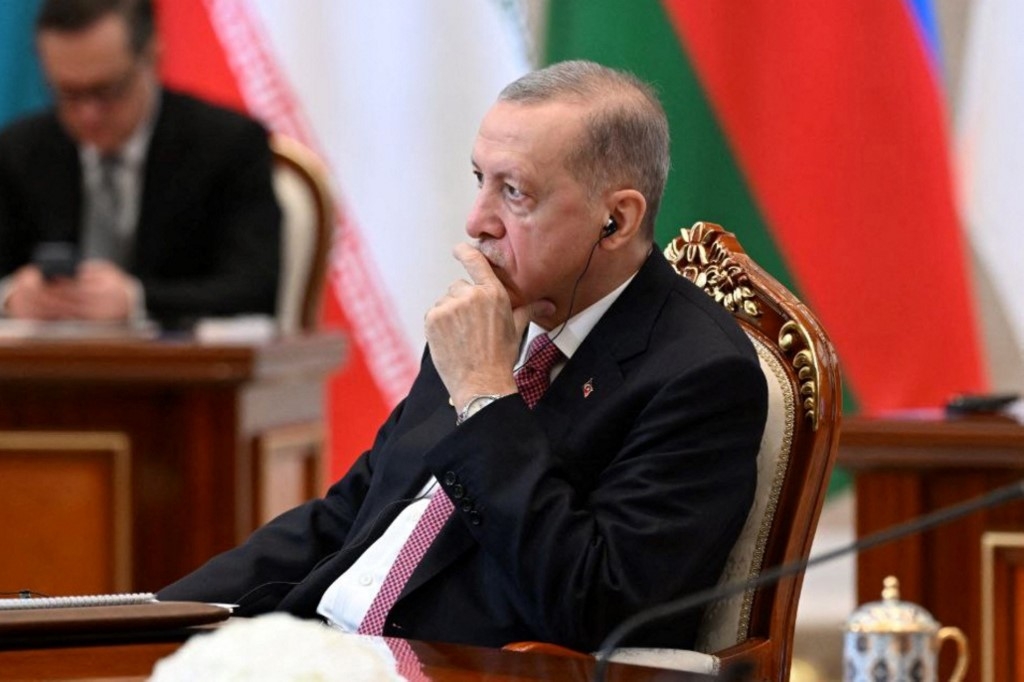
Turkish President Tayyip Erdogan has voiced his support for the Court of Cassation (Yargitay) in its ongoing dispute with the Constitutional Court, urging members of his ruling AK Party to align with him on the matter.
Tensions in the country escalated when the top appeals court, Yargitay, filed a criminal complaint against Constitutional Court judges on Wednesday, asserting that their ruling last month favouring the release of jailed parliamentary deputy Can Atalay was unconstitutional.
"Unfortunately, the Constitutional Court has made many mistakes in a row at this point, which seriously saddens us," Erdogan said during an interview on Friday with journalists who had accompanied him on his return from Uzbekistan.
"The Constitutional Court cannot and should not underestimate the step taken by the Court of Cassation on this matter," Erdogan emphasised.
In a separate statement on Friday, the Turkish president said that the judicial crisis suggests that the country needs a new constitution.
New MEE newsletter: Jerusalem Dispatch
Sign up to get the latest insights and analysis on Israel-Palestine, alongside Turkey Unpacked and other MEE newsletters
"We believe this crisis could be used for the betterment of the country by replacing the constitution written by the military junta more than 40 years ago," he said.
"We evaluate this issue by not taking sides but actually trying to resolve the root cause. We hope there would be a consensus within the parliament to begin the proceedings to draft a constitution. But for now, we will take the necessary steps to prevent a constitutional crisis through legal amendments."
Erdogan's ruling coalition doesn't have enough votes to draft a new constitution unless the opposition could be convinced to support such a move.
'Judicial coup'
Atalay, 47, received an 18-year prison sentence last year for his alleged involvement in an attempt to overthrow the government through nationwide protests in 2013, alongside Turkish philanthropist Osman Kavala and six others.
All defendants denied the charges, asserting that the protests developed spontaneously and marked the largest popular challenge to President Tayyip Erdogan during his two decades in power.
Atalay's lawyer, Ozgur Urfa, accused the Court of Cassation of committing a crime by not recognising the Constitutional Court's decision, labeling it a "judicial coup attempt".
Urfa called for compliance with the Constitutional Court ruling and urged an investigation into the Yargitay appeals court judges.
In contrast, Erdogan's chief adviser, Mehmet Ucum, defended Yargitay's move, stating: "The Constitutional Court continues to make unconstitutional decisions."
He shared the message on the social media platform X, formerly known as Twitter, arguing that decisions related to the parliamentary immunity of convicted MPs were unconstitutional.
The Istanbul Bar Association filed a criminal complaint against Yargitay judges involved in the case, citing misconduct and "depriving a person of liberty".
This judicial clash unfolds against the backdrop of Turkey's efforts to attract foreign investors following a shift towards more orthodox economic policies since the May elections.
Finance Minister Mehmet Simsek and Central Bank Governor Hafize Gaye Erkan have been engaging investors in meetings in both western capitals and in the Middle East.
Wolfango Piccoli, co-president of political risk consultancy Teneo, commented on the situation, stating: "The spat between the two courts highlights the pervasive damage caused by the politicisation of the judiciary in Turkey and will raise renewed concerns about the rule of law in the country."
He added, "Ankara should realise that the gradual return to economic orthodoxy is not enough to attract long-lasting international investments.
"Rule of law, predictability, and trust are fundamental for investors, and Turkey’s record in this front was and still is miserable."
Middle East Eye delivers independent and unrivalled coverage and analysis of the Middle East, North Africa and beyond. To learn more about republishing this content and the associated fees, please fill out this form. More about MEE can be found here.


